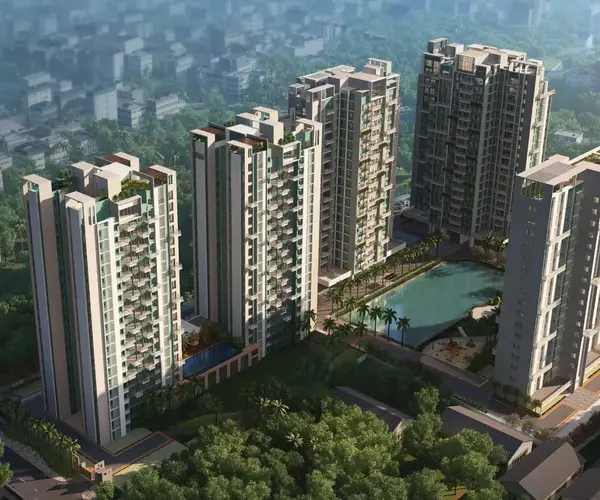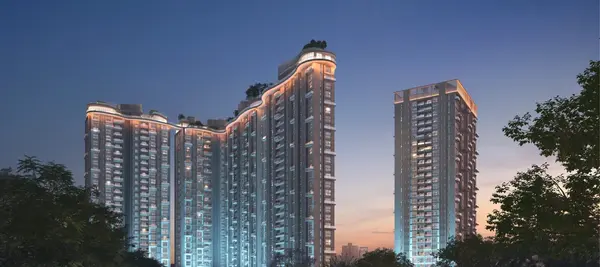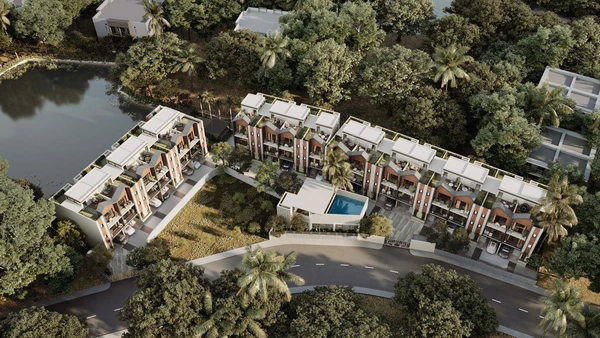Recent Post

Kolkata to Amend Laws for Tackling Illegal Constructions: Civic Body Takes Action
The Kolkata Municipal Corporation (KMC) is moving forward with significant amendments to the KMC Act (1980) to address the challenges of illegal constructions in the city. With stricter laws proposed, KMC aims to double the maximum punishment for violators, increase fines, and bolster its authority in tackling unscrupulous builders who disregard safety protocols and regulations. This blog delves into the upcoming changes and their anticipated impact on curbing illegal constructions in Kolkata.
Contents
- The Need for a Law to Deal with Illegal Buildings
- Proposed Amendments to the KMC Act (1980)
- Impacts of Illegal Constructions on Society and Environment
- Current Mechanisms for Addressing Illegal Buildings
- Strengthening the Authority of Civic Officials
- Public Reporting of Illegal Constructions
- Potential Impact of the New Law on Public Safety and Urban Planning
- Prevention of Illegal Construction in West Bengal
1. The Need for a Law to Deal with Illegal Buildings
Illegal constructions, defined as buildings or structures without proper permits, have been on the rise in Kolkata. They pose a severe threat to public safety and hinder effective urban planning. These buildings, often constructed with inferior materials, compromise safety standards and increase the risk of incidents like the Garden Reach building collapse, which tragically claimed 13 lives. Therefore, a comprehensive law to deal with illegal buildings is essential to prevent such incidents and ensure safer urban development.
2. Impacts of Illegal Constructions on Society and Environment
Illegal constructions adversely affect both society and the environment. Key concerns include:
- Safety Risks: Illegal buildings often use substandard materials, putting residents and the surrounding community at risk.
- Environmental Degradation: Unauthorized constructions can lead to deforestation and increased pollution due to lack of adherence to environmental norms.
- Impact on Infrastructure: Unauthorized constructions strain local infrastructure, leading to issues in water supply, sewage management, and road congestion.
These effects underscore the importance of a strict illegal buildings law in Kolkata to protect citizens and preserve the environment.
3. Proposed Amendments to the KMC Act (1980)
The KMC Act (1980) is set for a significant amendment, targeting increased penalties and stricter enforcement to deter unauthorized constructions. Key proposed changes include:
- Increased Punishment: The amendment seeks to double the maximum jail term from five to ten years for builders violating safety standards.
- Higher Fines: The maximum fine is expected to rise from ₹50,000 to ₹10 lakh, creating a strong financial disincentive.
- Stricter Enforcement Mechanisms: The KMC plans to amend Section 401(A) to provide more authority to officials, allowing them to issue non-bailable arrest warrants for serious violations.
These changes are aimed at creating a robust illegal buildings law in Kolkata, empowering officials to take swifter action against violators.
4. Current Mechanisms for Addressing Illegal Buildings
KMC currently follows several procedures to regulate illegal buildings, including:
- Building Permits: Building permits are mandatory for new constructions and major renovations.
- Demolition Orders: KMC can order the demolition of dangerous structures or unpermitted buildings without a hearing if they pose a significant threat.
- Notices and Fines: Owners of illegal buildings are issued notices and can face fines and imprisonment for failing to comply with building standards.
- Municipal Building Tribunal: This tribunal hears appeals from those involved in illegal constructions and takes necessary actions.
Also read: 10 Important Things that You Should Check Before Purchasing a Flat in Kolkata
5. Strengthening the Authority of Civic Officials
The amendments aim to empower KMC officials with more authority to tackle violations effectively. For instance, Section 401(A) will be amended to “give more teeth to civic officials,” enabling them to act decisively against illegal constructions. These enhanced powers will allow KMC officials to:
- Issue Non-Bailable Warrants: Officials will be able to request non-bailable arrest warrants for serious offenders.
- Prosecute Violators Swiftly: Strengthened legal provisions will facilitate quicker prosecution of builders who violate rules.
- Increase Accountability: Builders will face more severe consequences for non-compliance, reducing the likelihood of repeated offenses.
These provisions aim to create a comprehensive law to deal with illegal buildings, giving KMC officials the necessary tools to enforce compliance.
6. Public Reporting of Illegal Constructions
KMC encourages the public to report illegal constructions. The process includes:
- Filing a Complaint: Individuals can file complaints with the municipal corporation if they identify unauthorized buildings.
- Online Reporting: An online platform is available for submitting complaints, making it easier for residents to report violations.
- Documenting Evidence: Complainants should provide supporting evidence, such as property documents or photographs, to substantiate their claims.
This system aims to enhance civic engagement and provide a more efficient response to complaints, promoting a community-driven approach to enforcing illegal buildings law Kolkata.
7. Potential Impact of the New Law on Public Safety and Urban Planning
The proposed amendments to the KMC Act (1980) signify a major step towards a safer and more organized Kolkata. The anticipated impact of this updated illegal buildings law includes:
- Enhanced Public Safety: With harsher penalties, builders are more likely to follow safety protocols, reducing risks associated with poor construction practices.
- Efficient Urban Planning: Limiting unauthorized constructions allows for better-planned infrastructure, optimizing resources like water, electricity, and road networks.
- Positive Environmental Impact: Stricter controls can reduce environmental harm, preserving green spaces and preventing issues like landslides and soil erosion.
These outcomes highlight the role of a strong law to deal with illegal buildings, emphasizing the importance of regulatory compliance to create a safer and more sustainable urban landscape.
Read: Powerful Implications of Real Estate Laws on Your Home Purchase
8. Prevention of Illegal Construction in West Bengal
With the rising population, the number of buildings and houses constructed in West Bengal has surged, leading to an increase in illegal constructions. Understanding the regulations surrounding these illegal constructions can empower you to take action against them. If you encounter such situations, you can file a complaint with your local municipal authorities. Consulting a property lawyer can also provide effective solutions for disputes related to illegal constructions and building regulations in West Bengal.
When constructing your home, it’s crucial to work with a reputable and best real estate company in Kolkata that has a proven track record. One such renowned builder is Sugam Homes. With over 30 years of experience, Sugam Homes stands out as one of the best builders in Kolkata, delivering properties defined by excellence, trust, and a commitment to innovative design and technology.
At Sugam Homes, we prioritize sustainability and eco-friendliness in our buildings. From architectural design to maintenance, our commitment to green concepts is embedded in our operations, ensuring our residents enjoy a lifestyle that harmoniously blends nature with contemporary features.




